23 July 2024, Kabul, Afghanistan – Substance use and substance use disorders remain a significant public health burden in Afghanistan, devastating families and communities across the country. Substance use claims hundreds of lives each year, with substance dependence among women on the rise.
Since 2023, WHO has played an important role in improving the public health response to substance use disorders in Afghanistan. WHO has supported community-based efforts to prevent initiation of substance use; has integrated mental health and psychosocial support (MHPSS) services into general health programmes; and has provided quality treatment for those in need. It has done so thanks to support from donors like the European Union and partners like the United Nations Office on Drugs and Crime (UNODC).
WHO Afghanistan has further provided strong support to specialized centres for the treatment and rehabilitation of people with substance use disorders. In 2023, these efforts helped about 1000 people to complete residential treatment and move into the relapse prevention phase, during which they receive ongoing support to reintegrate into their communities.
This approach is based on evidence that a substance use disorder is a chronic disease that can be prevented and treated. It is inspired by the lives of people who have benefited from evidence-based treatment and harm reduction interventions, allowing them to rebuild their lives.
Abdul Rahim Rajaye, aged 62 years, is one of those people who has turned his life around. As founder and chief executive of the Bridge Hope Health Organization (BHHO), a nongovernmental organization (NGO), he now dedicates himself to helping others do the same.
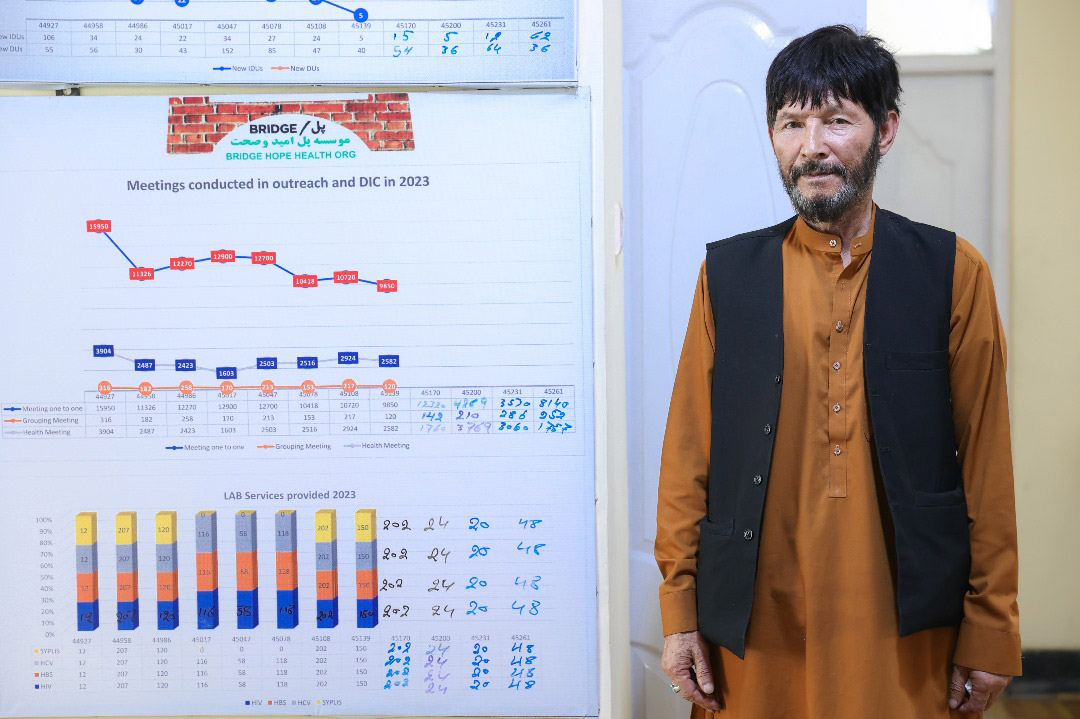
Abdul Rahim Rajaye: from addiction to advocacy
Abdul Rahim Rajaye, founder and chief executive of BHHO, understands first-hand the power of recovery and the impact of evidence-based interventions. His journey with substance dependence began in 1994, when he was a refugee. For 17 years, Abdul Rahim struggled with substance use, until he decided to seek help in 2011.
With the support of a community-based treatment programme, through which he received 4 years of methadone maintenance treatment, Abdul Rahim was able to overcome his substance dependence.
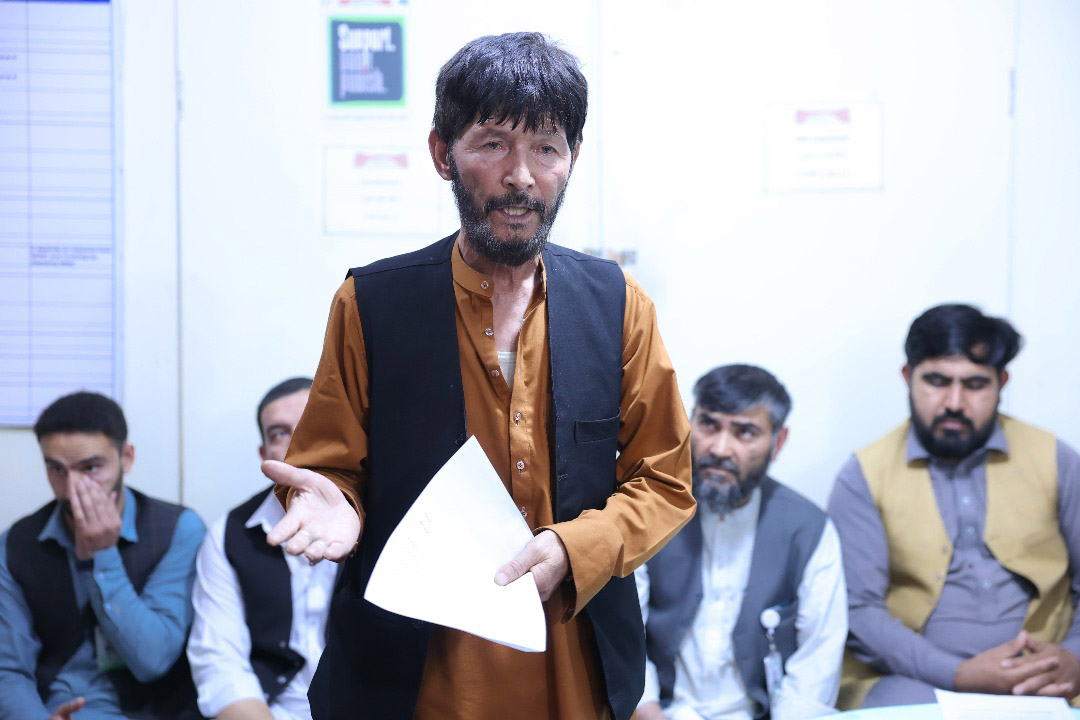
Founding the Bridge Hope Health Organization
Inspired by his own recovery, Abdul Rahim founded BHHO in 2015. The NGO is dedicated to supporting people with substance dependence on their journey to recovery. BHHO currently provides regular methadone maintenance treatment to 80 registered patients, along with care and guidance to help them reclaim their lives. International support for this programme comes from the Global Fund, through UNODC in Afghanistan.
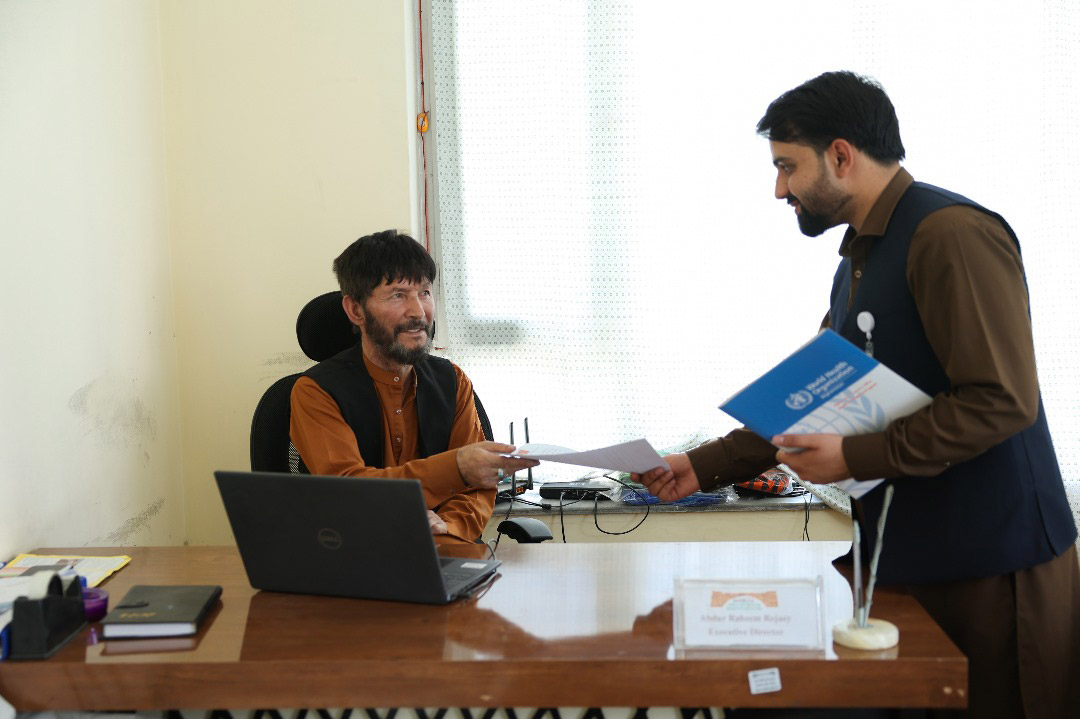
Advocating for rights far and wide
After his recovery, Abdul Rahim travelled to 10 countries, sharing his story, advocating for the rights of people with substance use disorders, and distributing a message of hope for change and recovery. His message has resonated with many, inspiring and encouraging those still struggling with substance dependence.
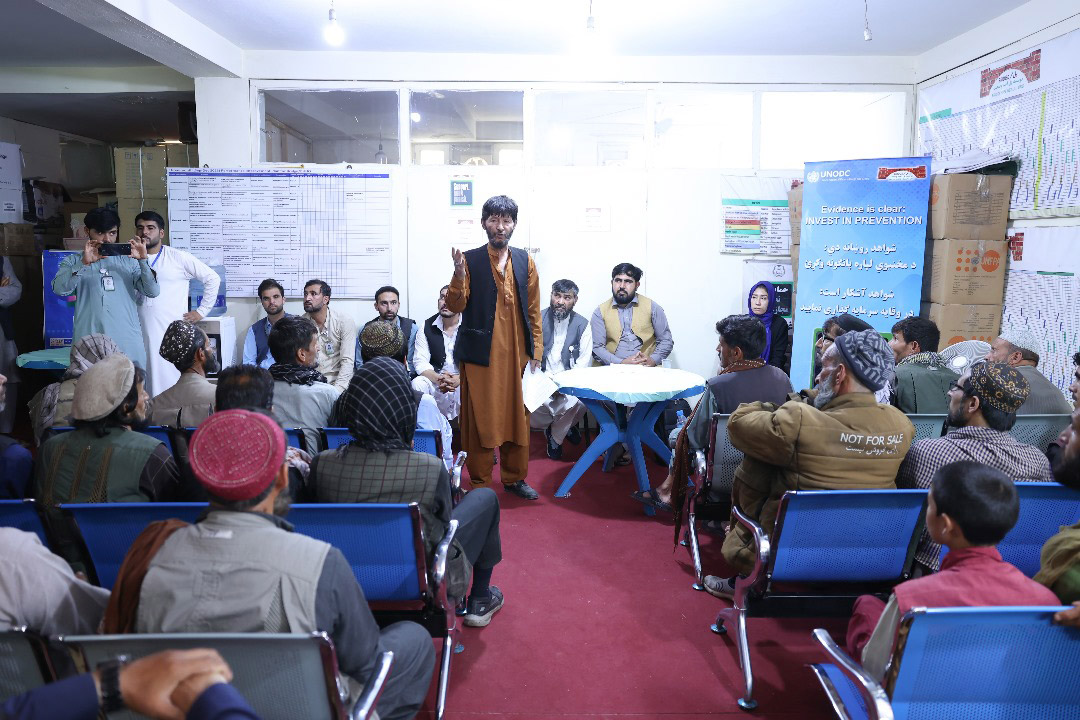
Support. Don’t Punish Day
Each June, Abdul Rahim and BHHO mark the Support. Don’t Punish Global Day of Action. This global campaign calls for better drug policies that focus on health and human rights instead of punishing people who use drugs. With its emphasis on support and rehabilitation over punishment, the campaign serves as an alternative to the International Day against Drug Abuse and Illicit Trafficking.
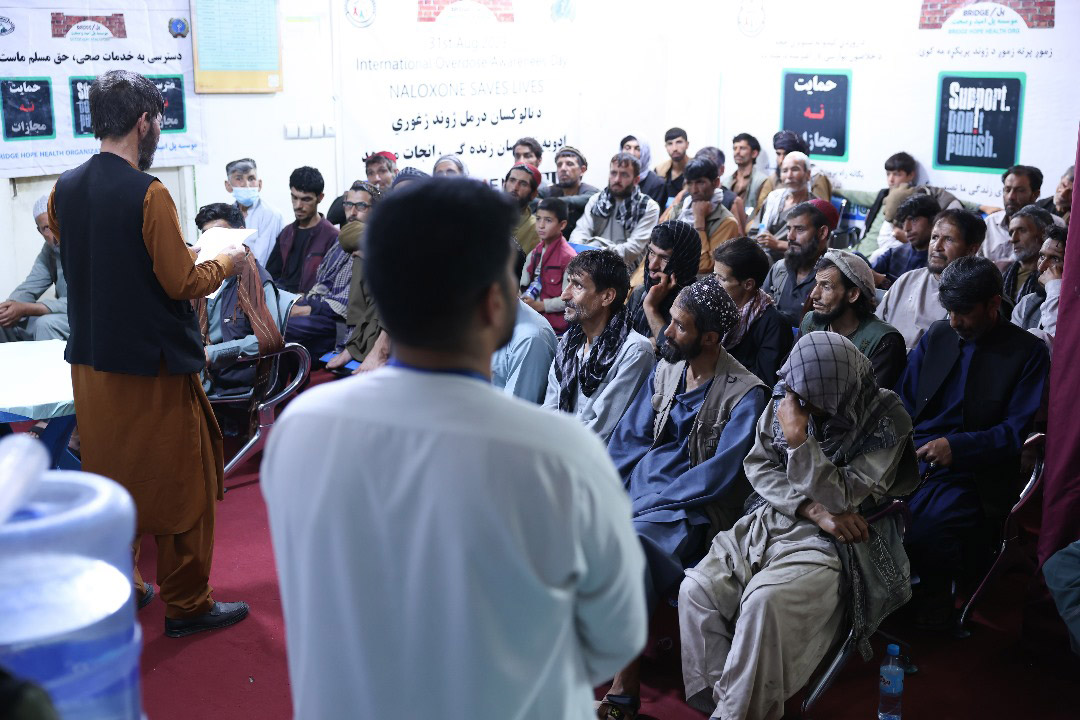
The transformative power of rehabilitation
“The World Health Organization has played a crucial role in supporting treatment and rehabilitation programmes in Afghanistan,” said Dr Edwin Ceniza Salvador, WHO Representative and Head of Mission in Afghanistan. “Through collaboration with UNODC and other partners active in the area of substance use disorders, WHO’s initiatives provide essential resources and support for individuals struggling with substance dependence. These efforts aim to create a healthier and more supportive environment for recovery.”
Abdul Rahim’s experience is a reminder that rehabilitation and support can transform lives. His dedication to helping others recover from substance dependence and his advocacy for humane drug policies show the profound impact of compassionate care and community support. As Afghanistan continues to grapple with the challenges of substance use, Abdul Rahim’s story offers hope and inspiration for a better future.


